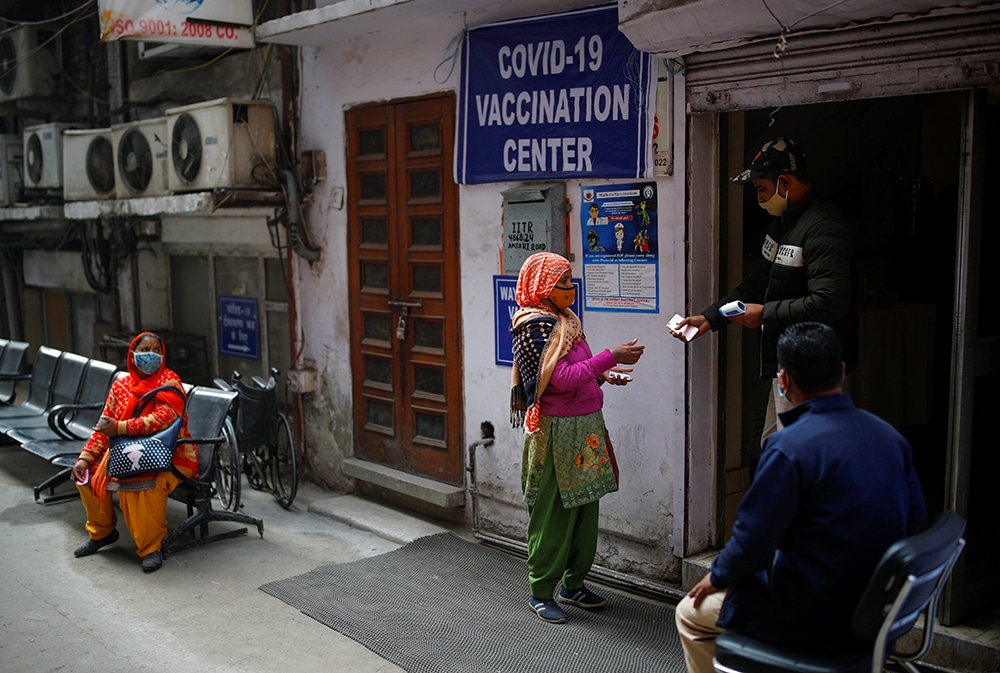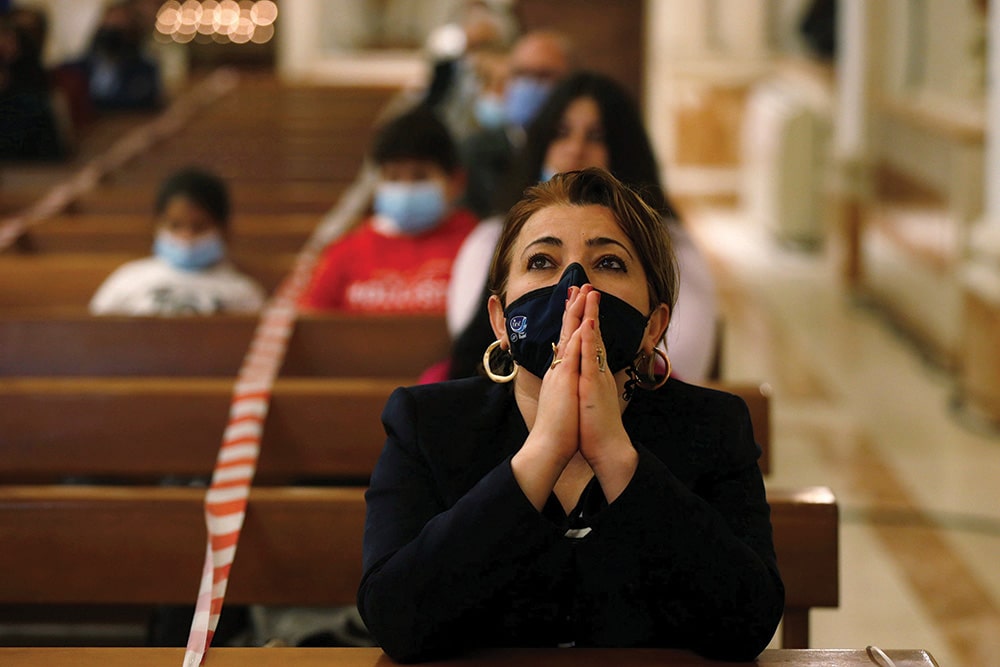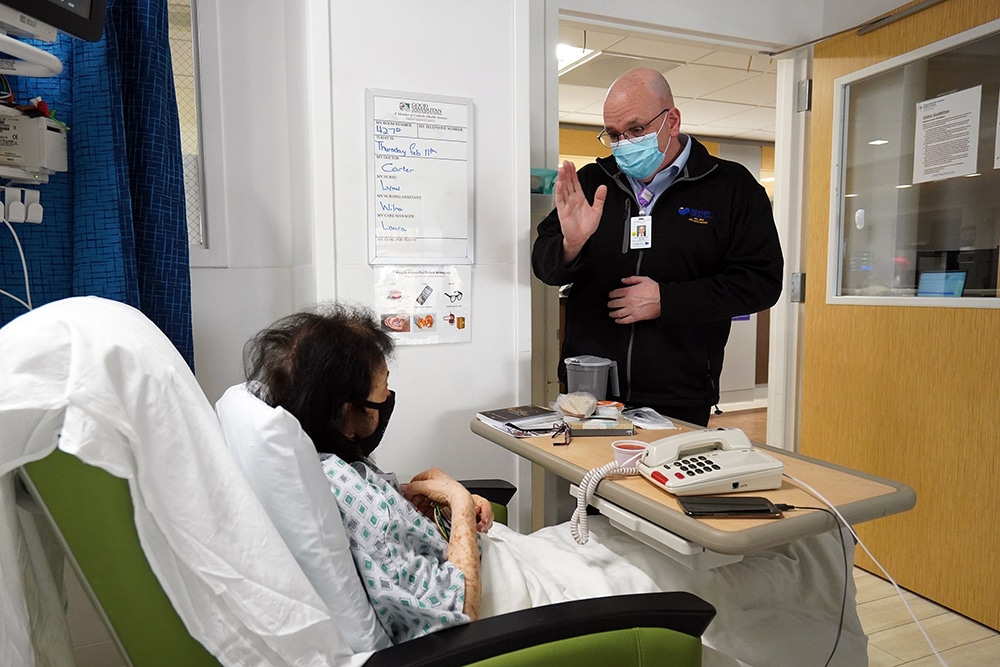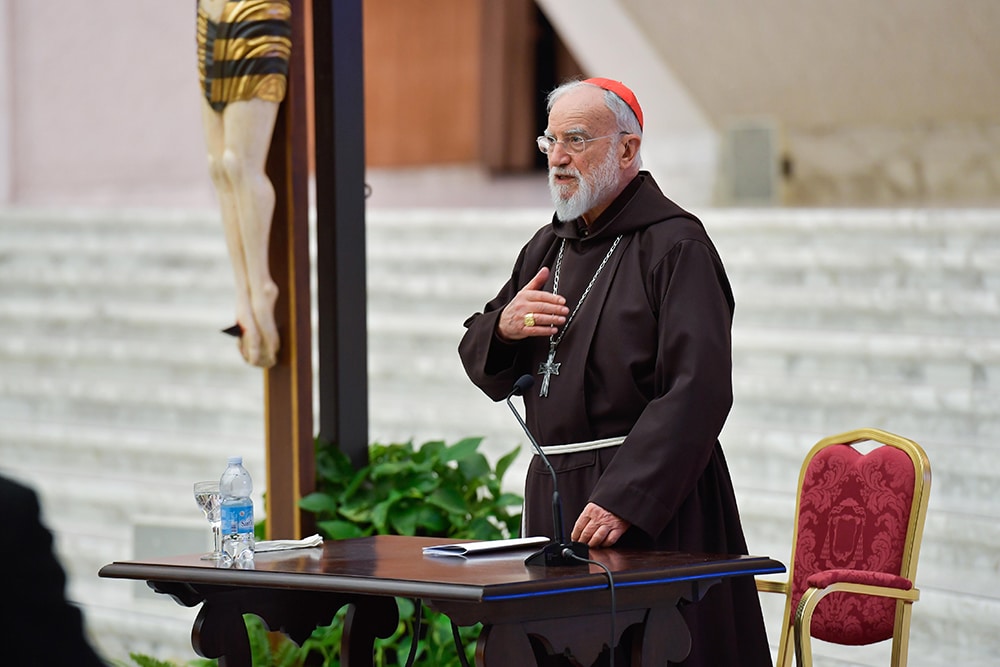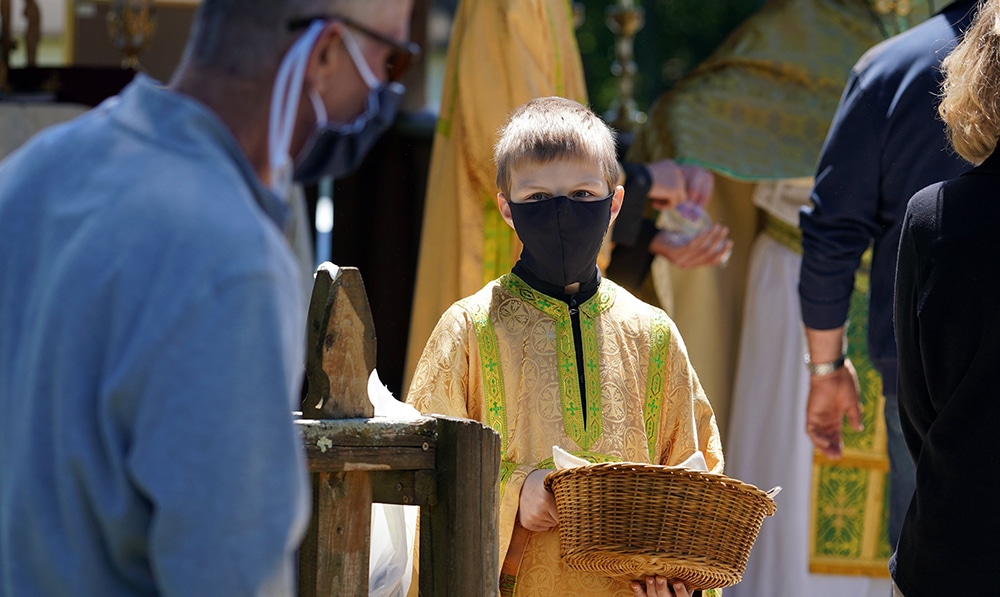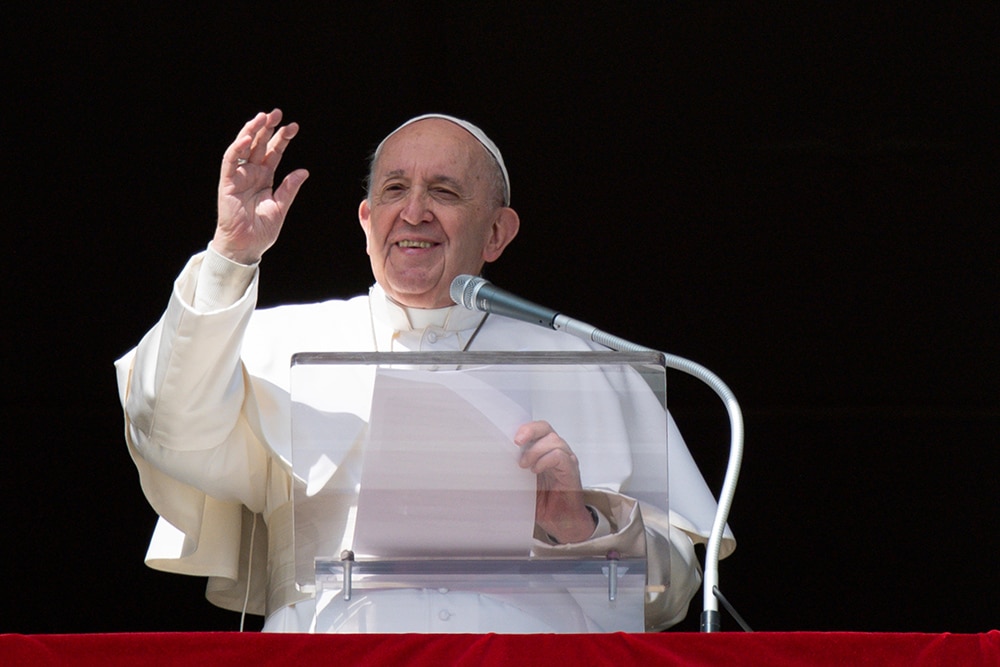VATICAN CITY (CNS) — The Vatican threw its support behind an effort by India, South Africa and a host of developing nations to loosen international patent protections and speed up sub-licensing agreements for the production of COVID-19 vaccines, pharmaceuticals and personal protective equipment.
“Despite the billions of taxpayer dollars invested in R&D (research and development), and announcements that COVID-19 vaccines should be considered a public good, no government has openly made such a public commitment,” Archbishop Ivan Jurkovic said Feb. 23.
The archbishop, who is the Vatican representative to U.N. agencies in Geneva, spoke at a meeting of the World Trade Organization’s Council for Trade-Related Aspects of Intellectual Property Rights.
“Most countries of the world are experiencing delays in vaccine rollout programs,” the archbishop said. “Such situations have resulted from insufficient product manufacturing and the consequent lack of availability of the required number of vaccine doses. On the other hand, in many countries, a large number of manufacturing facilities, with proven capacity to produce safe and effective vaccines, are unable to utilize those capacities” because of the patents and other intellectual-property protections.
The international TRIPS (Trade-Related Aspects of Intellectual Property Rights) agreement, he said, has proven to be too cumbersome to facilitate sub-licensing.
In addition, he said, the agreement’s “flexibilities allow limited policy space for public health, but they never were designed to address a global health crisis, such as the one we are experiencing at present.”
“Granting a waiver from the implementation, application and enforcement” of specified sections of the agreement in order to prevent, contain or treat COVID-19 “would be a strong signal demonstrating real commitment and engagement and thus moving from declaration to action in favor of the entire human family,” Archbishop Jurkovic said.
Ten developing countries, responding to criticism of the waiver request, sought to address the objection that the patent protections promote innovation by rewarding companies that invest in research and development.
“Never has there been a weaker case for the granting of monopolies,” said the response by Bolivia and nine other nations. “Governments have been funding the development of COVID drugs and vaccines, and no company is able to meet the global demand.”
“Governments must attach strings to any public money given for COVID-19 medical tools to guarantee that, if they prove safe and effective, they are available to everyone,” the response continued. “Some conditions had been set on companies, but none of it goes far enough to ensure that IP (intellectual-property) rights assigned to companies benefiting from taxpayer money do not abuse such rights down the line.”
As the World Trade Organization was debating, the Commission of the Bishops’ Conferences of the European Union and Caritas Europe issued a statement calling for: a quicker vaccination rollout in Europe, including in Europe’s poorer countries; opening up manufacturing possibilities in more countries; and a greater sharing of European vaccine resources with poor countries around the world.
“We urge the European Union to promote wide-scale vaccination not only for Europe’s own safety and protection, but also for global public health as a public good, benefiting people living in poorer nations as much as they benefit people living in countries with the resources to create and produce the vaccines,” the statement said. “Ensuring vaccine access for all — that they are available and affordable — is a global moral urgency.”

